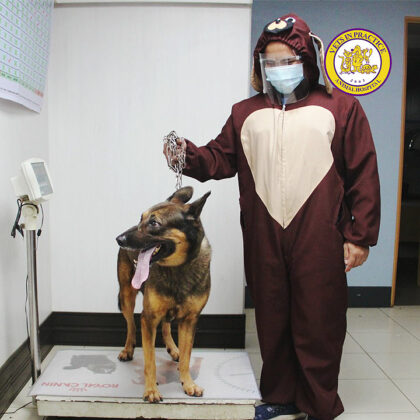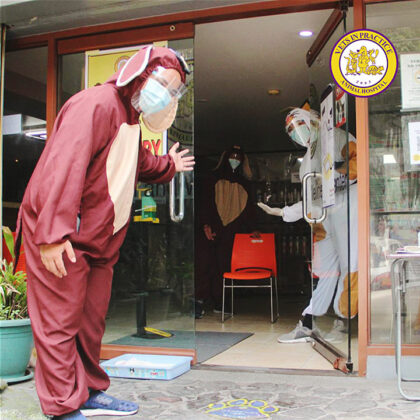Update: Edukasyon.ph won the grand prize at Ignite 2020 Cyber’s Wildfire pitch competition. The Gen Z platform helps students make better-informed decisions in their education, career, and life choices. Its website has half a million registered users and attracts 10 million unique visitors annually.
“We are incredibly grateful for this,” said founder and CEO Henry Motte-Muñoz. “My best advice to startups is to never give up. Find your true north. Don’t think of a no as a full setback. Take it as an opportunity to improve.”
Edukasyon.ph beat other category finalists: MyGolana (health tech); NextPay (fintech); 1Export (e-commerce); and Peak (workplace tech). All, save for Peak, are Philippine-based.
The judges for the grand pitch competition are James Tan, general partner of Quest Ventures; Ee Ling Lim, Singapore lead of 500 Startups; Vijay Tirathrai, managing director of Techstar; Tommy Mazenc, investment manager of True Corporate VC; and Hanno Stegmann, DV partner & director of BCG Digital Ventures.
Four Philippine startups won in their respective categories in a pitch competition open to entries from the ASEAN and East Asia.
MyGolana, Edukasyon.ph, NextPay, and 1Export won in the health tech, education tech, finance tech, and e-commerce categories, respectively, of the Wildfire pitch session of Ignite 2020, an international innovation conference.
MyGolana aims to reduce the barriers of access to mental wellness and has a pending patent on its predictive analysis technology for those seeking professional counseling.
It bested Instalimb, Inc. (Philippines), a developer of low-cost 3D printed prosthetics; Hacarus (Japan), an artificial intelligence (AI) solution for manufacturing and medical industries; uHoo (Hong Kong), an app that measures air quality; MedHyve (Philippines), an AI-powered procurement platform for medical institutions; and Genovior Biotech (Taiwan), a manufacturer of biological injectibles.
Edukasyon.ph, a Gen Z platform that helps students make better-informed decisions in their education, career, and life choices, has a website with half a million registered users and attracts 10 million unique visitors annually. It recently closed the second tranche of its Series A financing round with Alternate Ventures, French Partners, Lorinet Foundation, KSR Ventures, Mustard Seed, and others.
Founder and CEO Henry Motte-Muñoz shared that Filipino students and their parents already know the value of education. “They just don’t know where and how to study and how to afford it,” he said. “We help them with that.”
The platform beat Edulab (Japan), an e-testing and exam operation subcontractor; LearnTalk (Philippines), an online platform for learning English; Akadasia (Singapore), a suite of content creation tools for educators; Lasluz (Vietnam), a tutoring service; Proctur (India), a learning management solution; and Cakap (Indonesia), an online platform for learning Bahasa.
NextPay is a digital banking suite offering solutions for the collection of customer payments and invoices, real-time analyses of income, and payment disbursement to employees, bills, and suppliers. The platform was created for the financially-underserved micro, small, and medium enterprises (MSMEs) market, which comprises 99.52% of businesses in the country.
“The Philippines, as you all know, is a cash-based economy. Most businesses actually still have to go to banks to manually deal with cash and checks… because most of the financial services today are for larger companies who can afford them,” said Don Pansacola, co-founder and chief executive officer of NextPay, during his pitch.
NextPay bested Long Term Industrial Development (Japan), an online cooperative system for farmers that provides online financing, trading network, and product transportation options; Trustdock (Japan), an e-KYC (know-your-customer or know-your-client) platform that verifies the identity of customers through ID authentication and facial and voice recognition; Crowd Realty (Japan), an equity crowdfunding marketplace which opens up investment opportunities in real estate by matching project planners and investors; Dealogikal (Philippines), an online supply chain commodity marketplace where different suppliers can compete for a potential client’s order; Platinum Analytics and Technologies (Singapore), a foreign exchange, gold, and cross-assets solutions platforms that that provides tools for risk mitigation, business optimization and integration, and other services; and Global Mobility Service (Japan), an online service that provides more accessible loans in purchasing vehicles for livelihood.
1Export is an end-to-end platform for cross-border trade and fulfillment services that helps micro, small, and medium businesses (MSMEs) by processing their exporting documents, converting their product labels to market-ready standards, fulfilling online orders, and providing them leads through an immigrant network.
“Out of the 1.6 million small and medium businesses in the Philippines, less than 1% are actually exporting, missing the opportunity to sell to a large Filipino diaspora of 8.6 million immigrants around the globe,” said Melissa Nava, the company’s founder and chief executive officer, during the pitch.
1Export raked in $700,000 in revenue in two years with no formal funding, with four times growth in monthly revenues since August 2019 year on year.
Other startups in the e-commerce category were: Qontak (Indonesia), a social CRM technology firm that provides sales and customer service solutions; Xpand (Japan), a company that designs contactless spatial links that blend with the landscape; Lingble (Singapore), a full-service, cross-border e-commerce solution; Last Mile Inc. (Philippines), a shared logistics service innovation company; EAMR (Singapore), a smart marketplace that uses artificial intelligence (AI) to find sellers willing to sell a product within a buyer’s budget; and Otospector (Indonesia), a used car certification platform.
The category winners will compete against each other for a chance to win $5,000 on October 22. — Patricia B. Mirasol and Mariel Alison L. Aguinaldo






